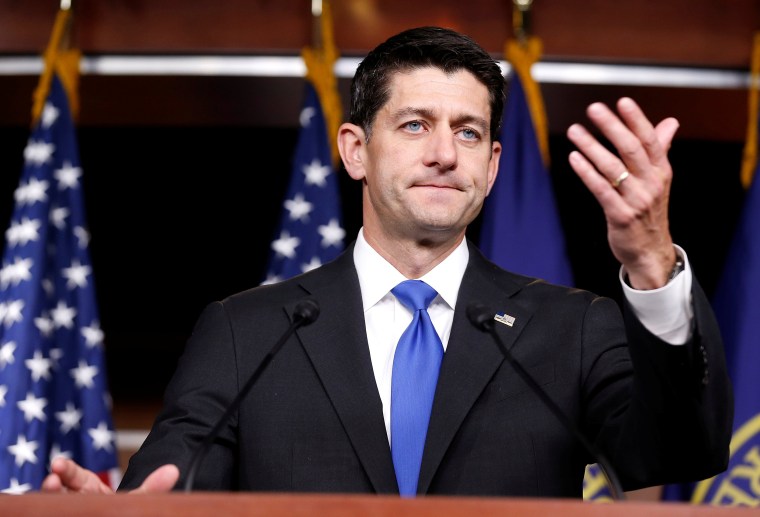WASHINGTON —President Donald Trump signed a $15 billion disaster relief package into law Friday afternoon, just hours after it passed the House with a broad bipartisan majority.
With the cleanup efforts from Hurricane Harvey running out of money and Hurricane Irma bearing down on Florida, Congress acted quickly, taking only three days to move the measure through both legislative bodies. But the bill, which includes a deal struck between the president and Democratic leaders to include short-term extensions of overall government funding and the nation's debt ceiling, saw sizable defections among Republicans in both chambers.
One day after the Senate passed it with 17 GOP defections, 90 Republicans voted against it in the House, including four from storm-ravaged Texas.
The updated version of the bill includes $7.4 billion for direct assistance for victims of Hurricane Harvey; $450 million for the Small Business Administration to help small businesses get back on their feet; and an additional $7.4 billion in community development block grants for all disasters this year. The added money could be used for Hurricane Irma or other natural disasters this year. It also extends the flood insurance program until December.
Rep. Mac Thornberry, R-Texas, head of the House Armed Services Committee, opposed the package because of the short-term additions. His district is in the northern part of the state and wasn't affected by Harvey.
The deal the president struck with Democrats has frustrated the Republican Party, especially as Trump appears more excited to work with Democrats while he publicly criticizes the GOP.
Ninety House Republicans voted against the measure, despite a pre-vote sales pitch from Treasury Secretary Steve Mnuchin and Budget Director Mick Mulvaney. But Republicans opposed to lifting the debt ceiling, especially for only three months, forcing them to vote on it twice before the end of the year, expressed their disappointment in that meeting.
Mulvaney, a former member of the House Freedom Caucus who never voted for a “clean” debt limit when he served in the House, listened to members as they expressed their frustration.
Related: Trump's Bipartisan Push Shakes up Capitol Hill
Rep. Darrell Issa, R-Calif., stood up during the closed-door meeting, according to a source in the room, and asked how many openings Mulvaney had at OMB because he had 42 of his old colleagues in the House Freedom Caucus to remind him of his fiscal principles. The room laughed while Mulvaney turned red, one member said.
“If it wasn’t so serious it kind-of would have been funny,” said Rep. Ryan Costello when he left the meeting.
Mulvaney was asked if he would have voted for the bill that he was now asking them to support. He responded that it was "not a relevant question."
Mnuchin asked the conference to vote for the bill for him, members said leaving the meeting. Rep. Mark Walker, R-N.C., who voted against the measure, called the argument “weak.”
“I thought he did a very poor job at answering our questions today,” Walker said. “In fact, his last statement was, 'vote for the debt ceiling for me.' I thought that was pretty weak.”
Rep. Joe Barton, R-Texas, whose district is close to Dallas in the northeastern part of the state, was not impressed with the administration’s presentation.
“I give them an A+ for courage and a D- for content,” Barton said.
CORRECTION (Sept. 8, 2017, 3:45 p.m.): An earlier version of this article misstated the name of a federal agency involved in hurricane relief. It is the Small Business Administration, not the Small Business Association.


